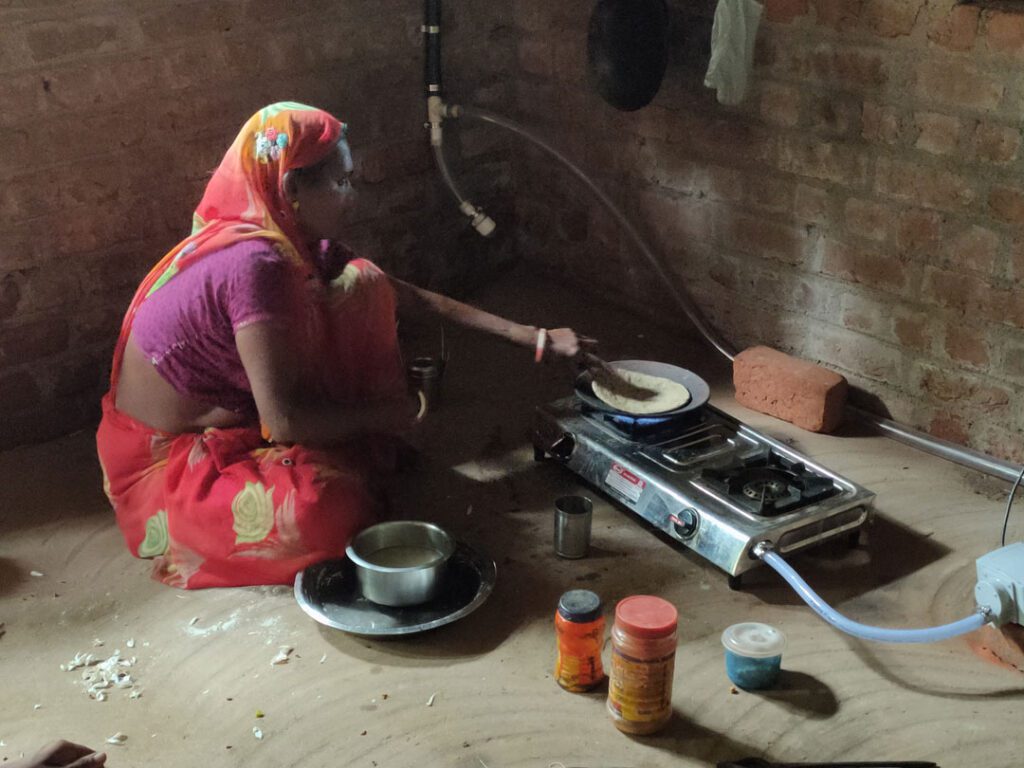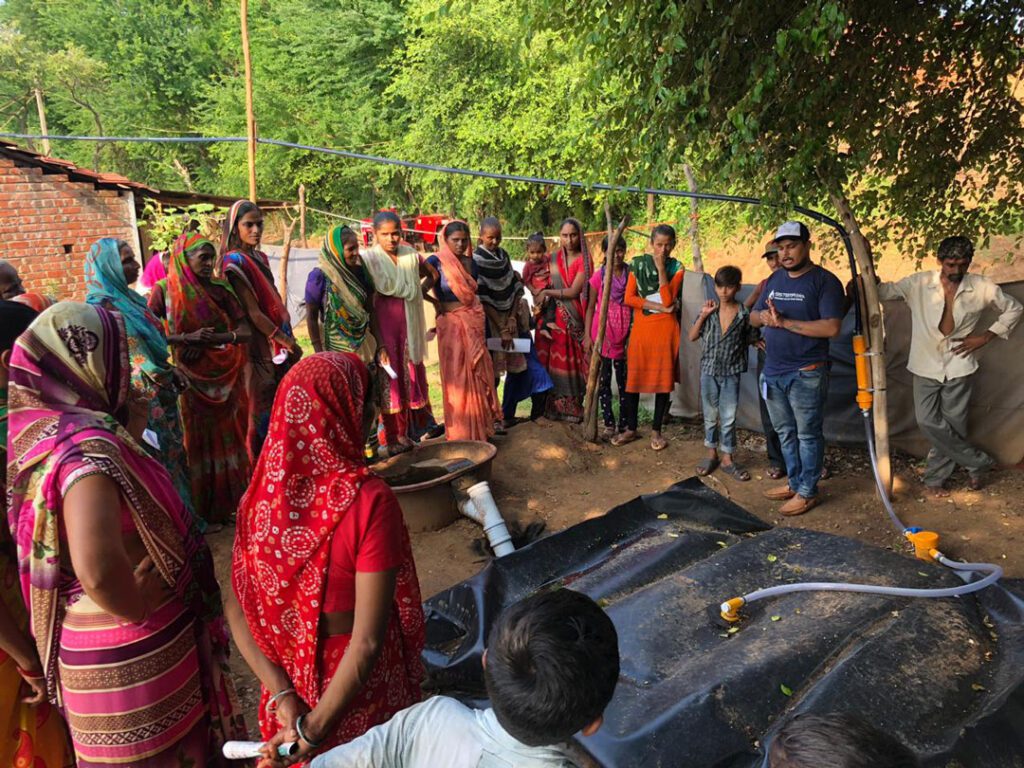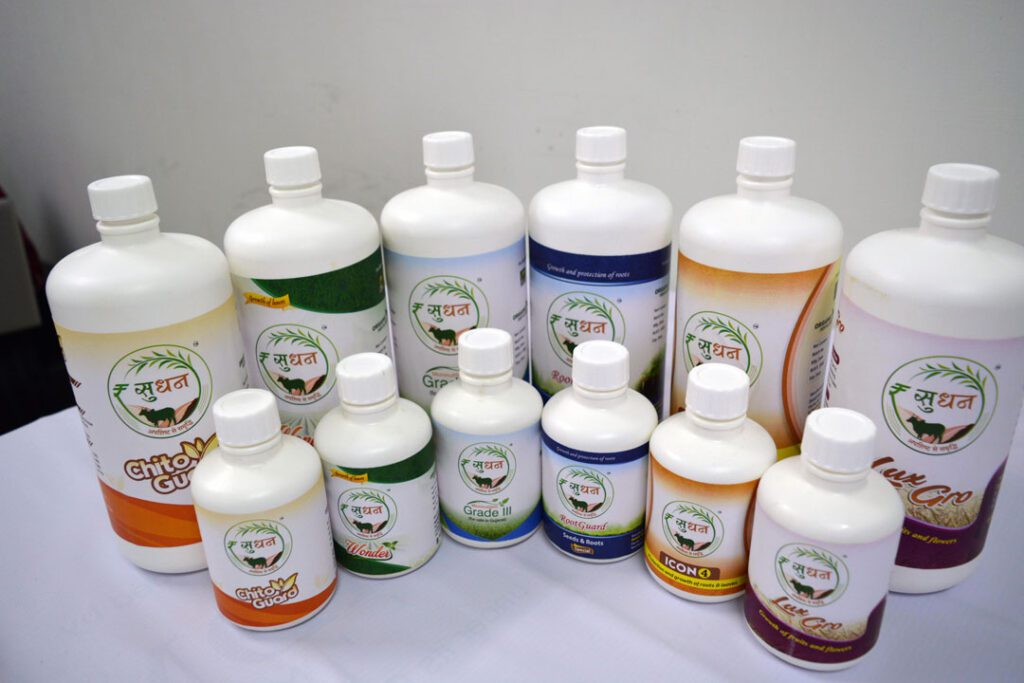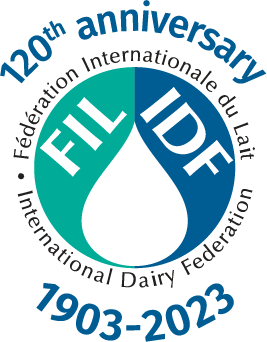Share this page
A robust manure vale chain – strengthening livelihood security of small holder dairy farming systems
Fortune at the Bottom of Gobar (Manure) Pyramid


Alignment with SDGs
AUTHOR
Shri. Dilip Rath, Chairman National Dairy Development Board • India
Abstract
For some time, cattle have been part of Indian society, providing nutrition to its people, draught power, fertilisers, and transport to name but a few.
Dairying is practised by small holder farmers in India, with between 1 to 5 animals. While a lot of time and energy go into managing the milk economy, little is done to manage the country’s manure (Gobar) economy. It is high time we ensure fair returns to farmers through efficient manure management.
According to the 20th livestock census in India, cattle and buffalo population is 302.79 million, owned by small and marginal dairy farmers, which generates around 1630 million tons of manure per annum. Scientific use of this manure, rich in organic matter, gases and nutrients can help country in saving enormous national resources.
The National Dairy Development Board (NDDB) of India, being the premier organisation to promote India’s dairy sector and having successfully helped establish milk value chain through network of cooperatives across India, can contribute immensely to establishing a sustainable manure value chain for small holder dairy farmers across the country.
To establish an efficient manure value chain fulfilling the cooking fuel needs of dairy farmers and providing them a source of stable income through sale of bio slurry while helping in mitigating adverse climate impact of dairying. The initiative had the further aim of manufacturing of slurry-based bio fertilisers and selling them to farmers at reasonable costs.
Moving the wheel
2302 domestic biogas plants were provided to small holder dairy farmers, all of them women, across the country for demonstration and to understand farmer response.
In a cluster-based pilot, all 368 dairy farmers in a village associated with existing dairy cooperative were provided with 2 cubic meter capacity biogas plants wherein an end to end manure value chain is established.
Surplus slurry, offered by these dairy farmers, is aggregated through local women’s dairy cooperative based on defined quality parameters and payments are made digitally.
Aggregated slurry is processed to manufacture fortified solid (e.g. phosphate rich organic manure) and liquid (different grade micronutrient, growth enhancers etc.) based bio fertilisers and sold to farmers.
History of success
The initiative helped in savings on fuel expenses, reducing drudgery of solid fuel arrangement & health hazards and providing an additional source of income to the women dairy farmers. Usage of biogas as cooking fuel, mitigated the adverse impact on environment. The biogas also replaced traditional solid fuel (wood) burning which had environmental hazards.
Enriching of bio slurry with required nutrients/micronutrients and manufacturing of various bio fertilisers (agricultural inputs) could considerably assist plant growth.
Village baseline and impact surveys were conducted to get farmers’ impression on usage of biogas plants, financial and social implications. Pilot flow meters (indicators) were used to understand biogas usage.
Demonstration and scientific study of slurry-based products were carried out on different crops to understand the impact of slurry-based products.




The initiative helped in savings on fuel expenses, reducing drudgery of solid fuel arrangement & health hazards and providing an additional source of income to the women dairy farmers.
Shri. Dilip Rath Tweet
A valuable initiative
The main beneficiaries of the initiative were female dairy farmers who could save on cooking fuel requirement to the tune of Rs.25,000/- in 1.5 years equivalent to the cost of biogas plants.
Usage of bio slurry in their own field is reducing requirement of chemical fertiliser and related expenses, showing positive results on productivity. The sale of slurry at around INR.2/litre has provided them an additional income of Rs.100/day
Scaling up of this initiative at the national level can help India generate cooking gas to the tune 50% of present LPG consumption and bio slurry to the tune of 44% of present NPK requirement.
Cooperative network in India has 17 million households associated with it. The robust manure value chain can suffice their cooking fuel requirement generating biogas equivalent to 12% of LPG presently consumed in the country and can ensure an additional income to the tune of INR.530 billion*. The initiative can also help create around 2.2 million new jobs resulting in additional pay-outs of INR.483 billion. Manufacturing of slurry based solid and liquid products have business potential to the tune of INR.3,000 billion and will also meet approximately 12% of NPK requirement of the country.
Our next steps
NDDB is the process of leveraging, the established dairy cooperatives in the country to scale up the manure value chain. For dairy cooperatives, it would be a complimentary strategy as their members will be able to generate additional income at the same time the well-established dairy value chain can be used for procurement, processing and sell of bio slurry and slurry based products
By the end of the year, NDDB, with support of Government of India, proposes to create clusters of manure value chain in major dairy potential states on India. NDDB has collaborated with Agriculture Universities and research organisations for testing, validation, and propagation of slurry-based bio fertilisers.






